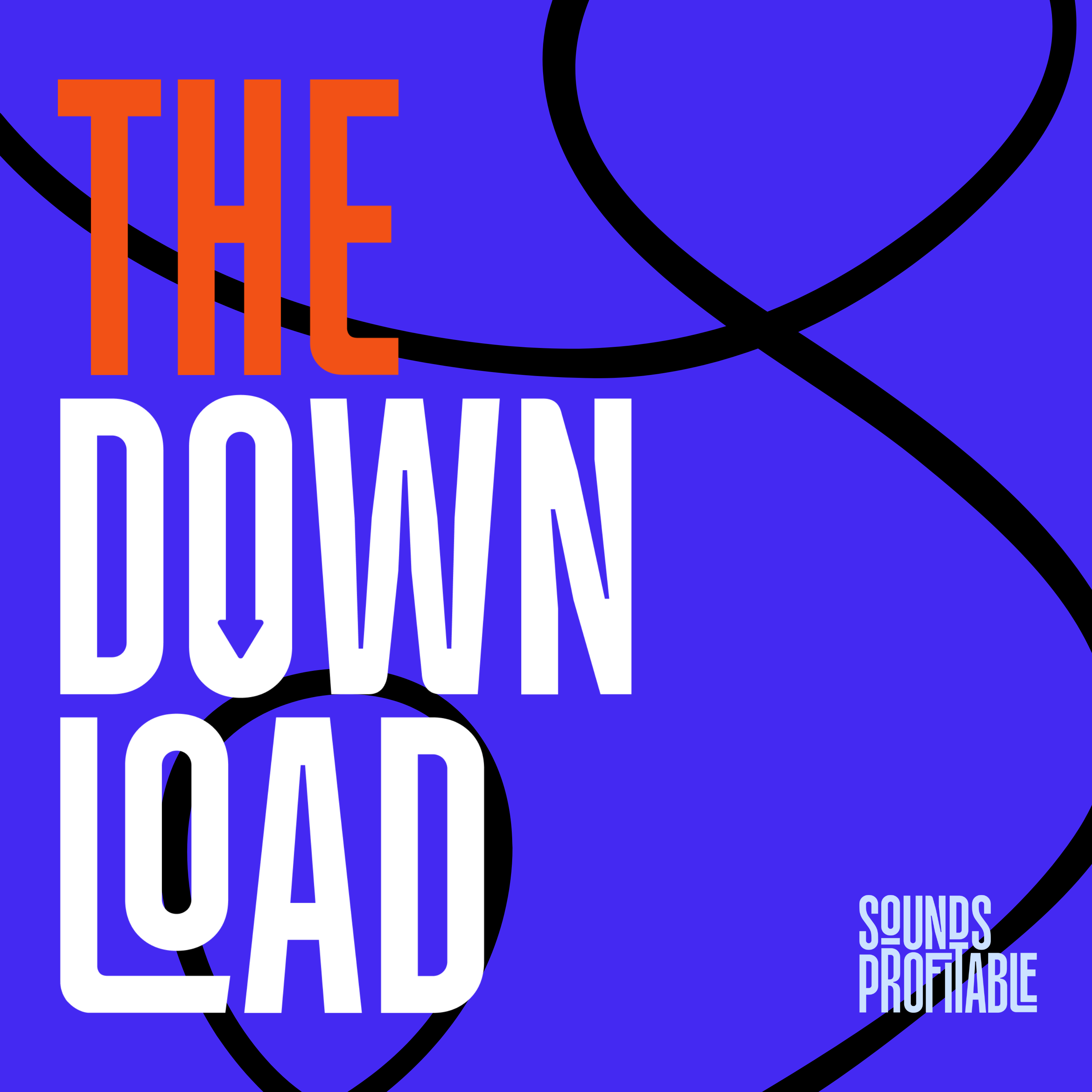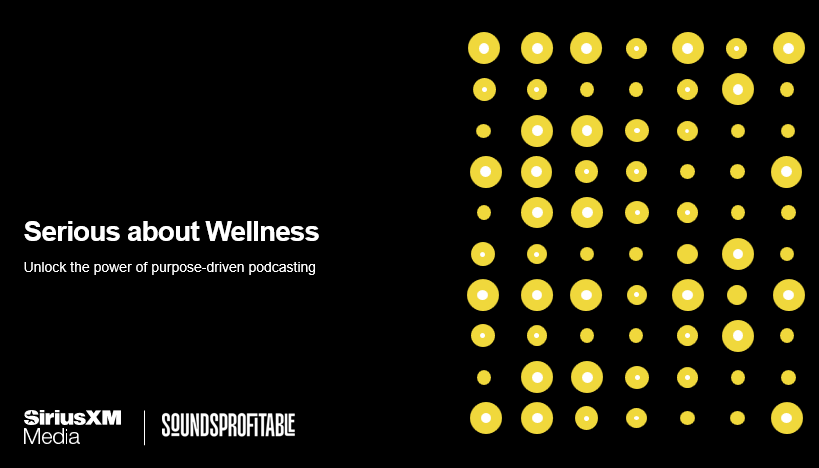This Week in Podcasting
We did it folks: we made it through the long weekend. Time to settle in and get some work don- what? It’s almost the weekend? I darn near lost track. On that note: I’ve got a couple of stories related to keeping an eye on things as they develop, as well as one centered around looking before one leaps. Let’s get started!

Track the trends in spend, ad load, podcasts on YouTube, and more: Download Magellan AI’s podcast advertising benchmark report for Q1
New FTC Guide Refines “Endorsement”
Last week, on June 29th, brand attorney Robert Freund posted a Twitter thread highlighting and explaining key sections of the Federal Trade Commission’s new Endorsement Guidelines. The new guidelines shine a light on what previously have been gray areas as far as product endorsements or advertisements requiring disclosure. From the FTC guide:
“Given that much of our guidance depends on consumer understanding, there will be times when we don’t have sufficient information about what consumers know, what they understand, and how they behave. Moreover, all these factors depend on the context or may change over time. This guidance doesn’t provide a safe harbor from potential liability; whether a particular advertising claim is deceptive or otherwise violates the FTC Act will depend on the facts of the specific case.”
The majority of sections Freund highlights target social media influencer advertising strategies. Common tactics to blur the line between sponsored endorsements and authentic content are addressed and codified as requiring full disclosure. For instance: a common tactic of tagging a brand deep in the description of a TikTok video does not qualify as valid disclosure in the eyes of the FTC. From the endorsement guide:
“The text description on TikTok is in small print, it doesn’t stand out, and it often doesn’t contrast against the background of the video. Also, TikTok videos often have many competing elements. A disclosure in the text description is thus very unlikely to be clear and conspicuous. When content creators want viewers to read something, they superimpose much larger text over their videos.”
Simply saying “thank you” to a brand or saying a product was “gifted” by the brand does not count as full disclosure that the endorser received the product for free. A person also doesn’t have to actually say anything positive about a product they received from a company they have a relationship with for it to still count as needing disclosure. The act of using and showing the product to one’s audience is enough to qualify as a tacit endorsement.
Overall, the FTC’s message is clear: if an influencer has a relationship with a company, they have to declare that relationship loudly and clearly, without any coy diversion or tricks like burying disclosure on a secondary website that’s linked to in a description. The FTC even considers the recent trend of “de-influencing,” in which a person warns viewers away from subpar products, a form of endorsement if the de-influencer has a business relationship with a company in the same field (e.g. a skincare vlogger with a makeup deal urging people not to buy competing brands).
The word “podcast” is not mentioned once in the FTC guide, which is good. The cases of podcasting companies getting slapped on the wrist by the FTC are few and far between. Usually they involve old-school violations like encouraging hosts to give a positive review of a product they’ve not actually used. That said, these new endorsement guidelines, having been specifically written with social media in mind, are a vital read for advertisers and podcasters alike.
Better to keep on the right path and be a poster child of compliance, rather than for the next version of these guidelines to feature podcasting heavily.
YouTube Confirm Tests to Stop Adblockers
A long-rumored Google adblock countermeasure has now been confirmed to be in testing stages. In a MediaPost article from June 30th, Karlene Lukovitz covers a Reddit post in which someone took a screenshot of the new countermeasure, currently being run as a global “small experiment” by Google.
The pop-up informs the viewer their access to the YouTube video player will be blocked after three videos. From the popup:
“It looks like you may be using an ad blocker. Video playback will be blocked unless YouTube is allowlisted or the ad blocker is disabled. Ads allow YouTube to stay free for billions of users worldwide.”
The popup finishes with two buttons: one to whitelist YouTube on the user’s ad blocker of choice, or a button to sign up for YouTube Premium, Google’s $11.99 per month subscription service that makes YouTube ad-free.
Outside of blocking streaming ads on specific platforms, ad blockers aren’t a particular concern for podcasting overall, but with YouTube’s importance to the podcast ecosystem, it’s worth keeping abreast of what the platform might look like in the coming months.
By virtue of podcasting’s advertising ecosystem largely being built around dynamically-inserted ads and baked-in files, ad blockers have yet to become a large-scale concern. Whether listeners manually skip forward in 30 second increments to bypass ads is a different story, but as of now podcasting has yet to encounter a mass-scale automated ad blocking in audio.
To Vodcast, or not to Vodcast?
This Wednesday Sharon Taylor, SVP of Podcast Strategy and Product Operations at Triton Digital, posted a blog titled “This LinkedIn article could have been a video podcast.” The piece takes a holistic view of the recent gold rush into video podcasting and attempts to find an answer for why video has suddenly become a must-have podcast feature. From Taylor’s post:
“Personally, I don’t think it’s a one-size-fits-all scenario. Whether or not you should have a video version of your podcast is a question of production time, money, audience composition, marketing plan, monetisation strategy, and a range of other factors. What is certain, though, is that there are no silver bullets in podcasting. Large, incredibly successful podcast publishers have struggled to find a meaningful audience on YouTube. Just having a video podcast is not going to guarantee anyone anything.”
Taylor stresses the importance of looking before one leaps. A strategy is vital for success, especially given the amount of different tasks that have to be added to the usual podcasting workload to make a show video-ready at the same time. Still, with Spotify gaining 30,000 video podcasts since the launch of the app’s video podcast integration in March, it’s clear the video side of the industry is growing rapidly.
“The question, then, is how best to fit video into your podcast strategy. Is video going to be a long-term part of your podcast publishing schedule? If so, will you be creating video-specific intros and versions of the shows, to suit platform-specific browsing and consumption habits? Would it be more successful as a subscriber-only or show-supporter perk? Should video be left right where it is in your marketing toolbelt? Maybe your podcast should just be a straight vodcast? Questions, questions, questions.”
This biggest question of them all, “will video eat podcasting?” is a big one. Taylor is of the opinion this is highly unlikely, as video could have eaten podcasting long before now. What has happened, however, is the gap between the two mediums has grown narrower. While adapting an existing audio-only podcast to a video production is still a significant investment in time and resources, it’s never been easier to distribute a video podcast to multiple platforms.
Industry Insights

In Q1’23 average ad loads were slightly down Q/Q, most notably in the Comedy, Arts, and TV & Film genres. Meanwhile ad loads in the True Crime, Science, and Music genres increased, despite the overall downturn.
After a seasonal drop in ad load typical to post-holidays in January, average ad loads increased M/M in Q1, most notably in the Technology and News genres.
Looking to get a handle on podcast advertising metrics? Book a demo with the Magellan AI team.
Quick Hits
While they may not be top story material, the articles below from this week are definitely worth your time:
- Spotify hits the 100,000 mark for video podcasts . Spotify has announced they’ve seen over 30,000 video podcasts join the platform since the initial launch in March, when the platform launched video podcasts to the public with 70,000 already onboarded.
- MediaMath Files For Bankruptcy, Owes Hundreds Of Millions. The Demand-side platform has filed for Chapter 11, owing dozens of companies hundreds of millions. The fifth highest-owed company is SXM Media’s Adswizz, with an owed debt of $3.4 million.
- mowPod Supercharges Self-Serve Platform with AI-Powered Ad Copy and Precision Targeting. The mowPod Boost Self-Serve platform now has the ability to generate ad copy and implement targeting options like geo-location, age, gender, and household income.


 "
"


